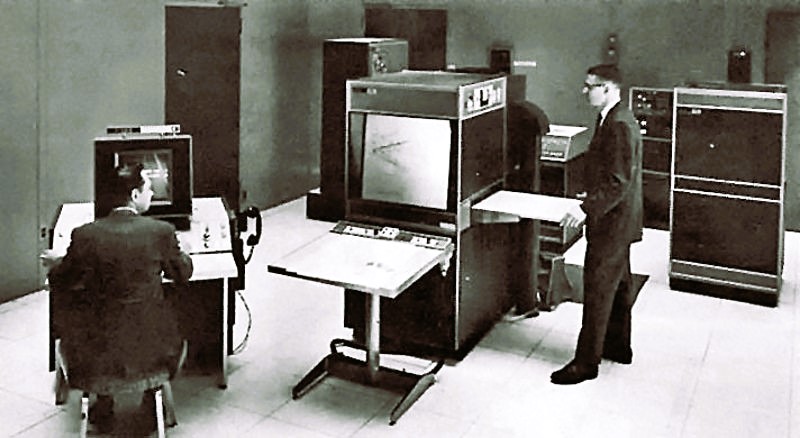Computer games, a ubiquitous form of entertainment in the modern world, have come a long way since their inception. These interactive digital experiences, ranging from the simple yet addictive classics to the graphically stunning and immersive masterpieces of today, have captivated audiences worldwide. To truly appreciate the significance of computer games, it’s essential to explore their origins, development, and the profound impact they’ve had on our culture.
A Glimpse into the Past
The concept of computer games can be traced back to the mid-20th century when computers were in their infancy. In the 1950s, researchers and computer scientists began experimenting with creating interactive programs for these massive machines. One of the earliest known computer games was “OXO” (also known as “Noughts and Crosses”), developed by A.S. Douglas in 1952 on the EDSAC computer at the University of Cambridge.
The 1960s saw the birth of “Spacewar!”—considered the first widely recognized video game. Developed by Steve Russell and others at MIT in 1962, “Spacewar!” involved two players controlling spaceships, engaging in a gravitational struggle. This seminal creation laid the groundwork for the gaming industry to come.

The Rise of Arcades and Home Consoles
As technology advanced, so did the accessibility of computer games. The 1970s witnessed the emergence of arcade games, with titles like “Pong” by Atari capturing the public’s imagination. The iconic “Pong,” a simplified tennis simulation, marked the beginning of the video game industry as we know it today.
The late 1970s and early 1980s saw the advent of home gaming consoles. Pioneering systems like the Atari 2600 and the Intellivision brought the arcade experience into people’s living rooms. This shift democratized gaming, making it a mainstream form of entertainment.
The Golden Age of PC Gaming
The personal computer revolution of the 1980s and 1990s significantly contributed to the evolution of computer games. The availability of more powerful hardware and sophisticated software paved the way for a diverse range of gaming experiences. Classic titles like “Doom,” “SimCity,” and “Civilization” captivated players with their innovative gameplay and graphics.
The 1990s also saw the rise of graphic adventure games, led by companies like Sierra On-Line and LucasArts. These games, such as “Monkey Island” and “Day of the Tentacle,” introduced narrative-driven experiences, emphasizing storytelling in addition to gameplay.
The Emergence of 3D Graphics and Online Gaming
The late 1990s and early 2000s marked a transformative period with the introduction of 3D graphics. Games like “Quake” and “Tomb Raider” showcased the potential of immersive 3D environments, setting the stage for a new era in gaming.
The internet’s widespread adoption further revolutionized the industry. Online multiplayer games became a cultural phenomenon, with titles like “Counter-Strike,” “World of Warcraft,” and “EverQuest” fostering virtual communities and redefining social interactions.
The Modern Era: Graphics, Storytelling, and Esports

In recent years, the gaming landscape has evolved exponentially. Technological advancements have led to photorealistic graphics, creating visually stunning worlds in games like “The Witcher 3” and “Red Dead Redemption 2.” Moreover, storytelling has become a focal point, with narrative-driven games like “The Last of Us” and “Cyberpunk 2077” captivating players with cinematic experiences.
The rise of esports, competitive gaming on a professional level, has turned gaming into a spectator sport. Events like The International for “Dota 2” and the League of Legends World Championship draw millions of viewers worldwide, highlighting the global impact of gaming.
Impact on Culture and Society
Beyond entertainment, computer games have left an indelible mark on culture and society. They’ve become a significant part of mainstream media, influencing movies, music, and even fashion. The term “gamer” is no longer reserved for a niche subculture but encompasses a diverse and widespread community.
Gaming has also proven to have cognitive benefits, enhancing problem-solving skills, strategic thinking, and hand-eye coordination. Educational games have emerged as effective tools for learning, making education more engaging and interactive.
Conclusion
From the early days of “Spacewar!” to the sophisticated virtual worlds of today, computer games have undergone a remarkable evolution. They have grown from experimental programs on massive mainframes to a multibillion-dollar industry that rivals traditional forms of entertainment.
As we look to the future, emerging technologies such as virtual reality and augmented reality promise to push the boundaries of gaming even further. The journey from simple lines on a screen to fully immersive experiences has been nothing short of extraordinary, and it’s a journey that continues to unfold, captivating new generations of players along the way.

